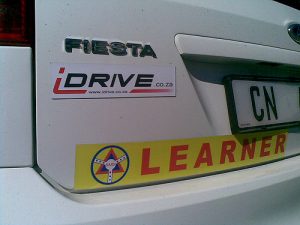 Commercial drivers in California must adhere to federal and state regulations to maintain their licenses.
Commercial drivers in California must adhere to federal and state regulations to maintain their licenses.
Because their jobs require them to frequently travel the roads, they are susceptible to getting traffic tickets for moving violations. Traffic citations can adversely affect the driving records and employment of CDL holders. Many employers have zero tolerance policies or extend strict penalties to truck drivers.
Traffic School May Be an Option
Commercial drivers may be eligible to complete the traffic courses that comply with California regulations.
- If the infraction occurred while the driver was in a noncommercial vehicle, the Traffic Court in California may approve traffic school.
- After the CDL holder successfully completes the courses, the points will not appear on the driver’s record for the particular offense.
Certain Offenses Are Not Eligible for Traffic School
In some cases, a CDL holder may be denied the choice to attend driving school for a qualifying traffic violation in a noncommercial vehicle. In these circumstances, the traffic infraction will negatively affect the CDL driver’s record. The offenses include:
- Alcohol or drug-related offenses
- Offenses with mandatory court appearances
- The driver attended traffic school for another citation within 18 months
- Two or more traffic convictions with three years following an initial traffic citation
- Excessive speed of 15mph or more over the required speed limit
- Traffic violations with the occurrence of reckless driving or tailgating
Traffic Citations May Still Affect Insurance Rates
Even though traffic school is an option to suppress drivers’ license points for commercial drivers in California, insurance companies will still be able to view the traffic conviction. Depending on the number of points that the CDL operator has on his or her license, insurance companies may charge higher insurance rates. Thus, the driver would need to shop around, compare rates and choose the best option for auto insurance.
Paying for Traffic School
If the court has approved traffic school, the CDL driver will receive a courtesy notice to register for driving school. The driver is responsible for all fees associated with requesting the court to attend driving school. The courtesy notice will include the amount that is required under the section Amount Due for Traffic School. There are three ways to pay for traffic school, including:
- In person at the courthouse in the County where the offense occurred. Upon receipt of payment, the driver will receive the Agreement to Attend Driver Improvement School.
- Mail the court a letter that states a request to attend traffic school and include the fee.
- Call the court’s automated line and pay by phone with a debit or credit card.
- Pay online on the court’s website using a debit or credit card.
For all payments made by phone, online, or via mail, the driver will receive the Agreement to Attend Driver Improvement School within three weeks of receipt of payment by the court.
Finding a Traffic School in California
The Agreement to Attend Driver Improvement School document allows the CDL driver to register for any school that is approved by the California DMV. The DMV Occupational License website provides more information regarding how to locate driving schools. In person and online traffic schools are available for CDL operators and noncommercial drivers, and course prices may vary from school to school.
According to the California Vehicle Code, CDL operators can maintain good standing with their driving records by completing traffic courses for minor infractions. Driving school may be approved by the court with certain exceptions when the offense occurred in noncommercial vehicles. A successful completion of driving school will help a CDL driver reduce points on his license. There are several state-approved schools available for commercial drivers.
[Image: https://www.flickr.com/photos/rafiqphillips/2769986493/]
Scott Desind
Latest posts by Scott Desind (see all)
- How to Request the County Seat and Fight Your California Traffic Ticket - May 21, 2023
- Don’t Even Touch That Cell Phone - July 13, 2022
- Innocent Until Proven Guilty - March 2, 2020

